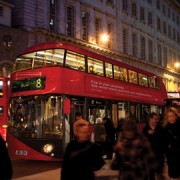Employees at a number of local authorities, including Hackney Council, are avoiding paying income tax by being paid through external companies, the BBC has reported.
Hackney Council has more than 39 employees in permanent posts who are paid through private companies, the highest number among any of the over 400 local authorities investigated.
The BBC revealed that almost 100 employees in total are being paid through external companies after its File on 4 programme submitted a Freedom of Information request to local councils throughout the UK.
Some high-earning employees can make their own tax arrangements, rather than being paid through the PAYE scheme. Margaret Hodge, chair of the Commons Public Accounts Committee, has described this as “a tax avoidance scheme.”
Although some officials may be paying PAYE through limited companies, they have the option of paying themselves via dividends, which are taxed at a lower rate and which mean they pay lower national insurance contributions.
Hodge told the BBC: “This is a tax avoidance scheme which is totally wrong. Where you are a public servant it’s not right you should be paid in a way that avoids tax.
“If someone sets up a scheme to avoid paying tax, that is income foregone to the public purse,” she said.
A Hackney Council spokesperson told EastLondonLines: “None of Hackney Council’s permanent staff are paid through limited companies. Sometimes the Council does engage temporary staff in permanent posts, either when it proves difficult to recruit a permanent staff member, or when it makes financial sense to do so.
“It is the Council’s policy that no temporary member of staff should exceed the cost to the Hackney taxpayer of a permanent staff member in the same role.
“Where the Council does engage temporary staff it does so through its employment agency Randstad Managed Services. Very occasionally, when the Council has been unable to source a suitably qualified person through Randstad, it will engage an individual as part of a temporary arrangement and pay them directly via a limited company. “
The council said all such arrangements over £500 are published on its website.
In a case investigated by the BBC, the chief executive of one council’s housing arm was paid more than £900,000 over a four-year period.
Local Government Association chairman Sir Merrick Cockell said councils adhered to strict tax legislation set out by HM Revenue and Customs, and had a responsibility to employ skilled staff in a way that provided good value to residents.
“During restructuring both private and public sector organisations sometimes meet short-term staffing needs through interim contracts because it provides flexibility and reduces potential costs, including long-term pension liabilities,” he told the BBC.





